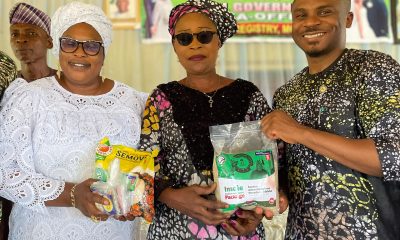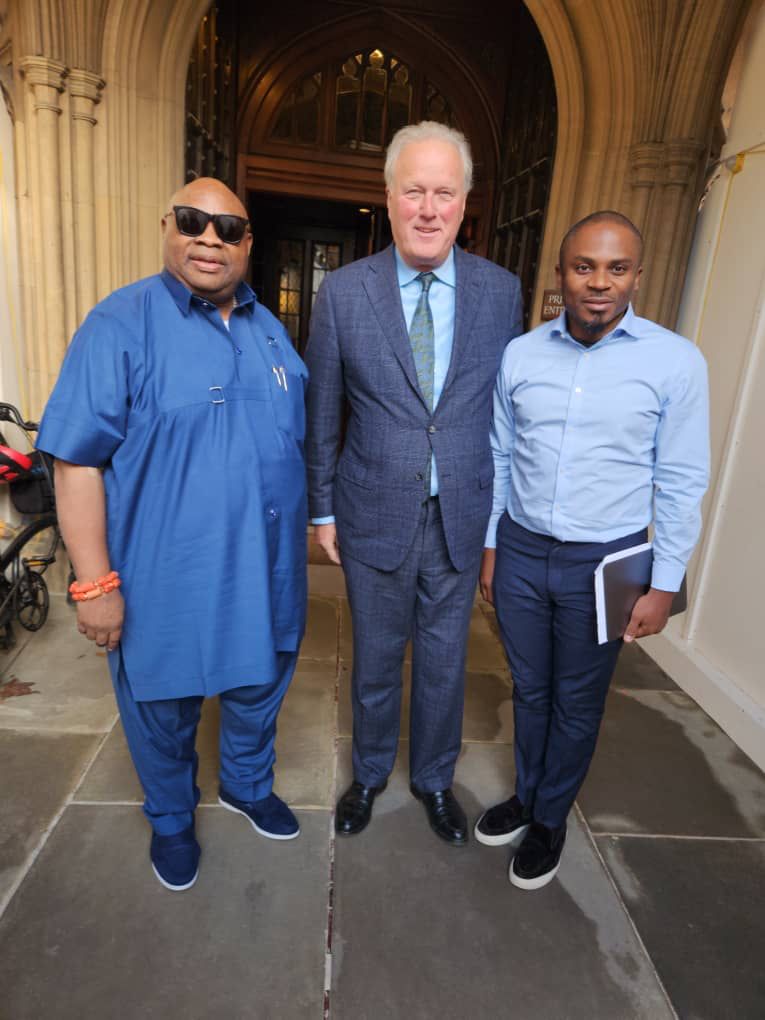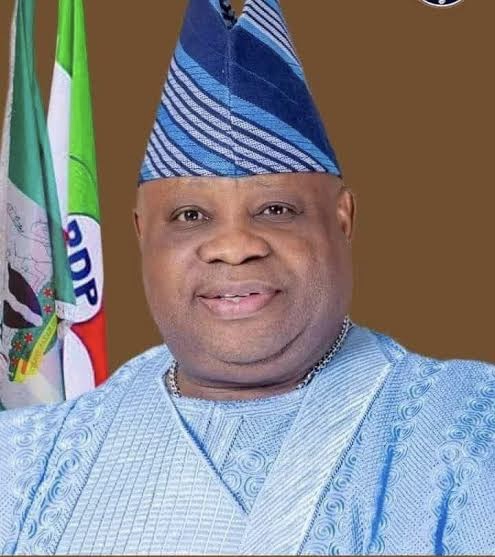Opinion
Lessons from Kigali: Transforming Osun State for a Sustainable Future

By Bamikole Omishore
Effective governance has proven to be an essential phenomenon in today’s world. This is the reason the journey of transformation started by the government in Osun State draws a striking parallel with the remarkable progress witnessed in Kigali, Rwanda. I was privileged to accompany Governor Ademola Adeleke on a leadership retreat to Kigali, Rwanda, and he was no doubt impressed by the level of orderliness and organization right from the airport. As the airport gates opened in Kigali, it was impossible not to notice the seamless order and organization that guided the process. This experience sets the stage for lessons that will shape the basis of learning for Osun State.
The hallmark of Kigali’s transformation is not merely its infrastructural advancements but the leadership mindset that propelled it forward. Rwanda’s leaders dared to dream big, inspiring unity and a shared vision of growth. In a similar vein, Governor Adeleke has committed himself to leading by example in Osun State. From improved healthcare services to enhanced education initiatives, the Governor is already sowing the seeds of positive change. And this is only the beginning.
One cannot help but be impressed by the lush greenery that envelops Kigali. The city’s commitment to climate sustainability is a testament to responsible governance. It is heartening to note that just a few days ago, Governor Adeleke pledged to plant over 100,000 trees in Osun State. This will not only help to beautify the state, but also help to combat climate change. Besides, this isn’t just an environmental gesture; it’s a solid commitment to a healthier, greener future for the good people of our state.
To further catalyze growth, Adeleke recognizes the importance of fostering an environment that nurtures innovation. According to Governor Adeleke during the visit, “We are taking steps to improve the ease of doing business in Osun, ensuring that startups with groundbreaking ideas have the support they need to flourish. These startups hold the potential to address local challenges with fresh solutions, driving not just economic progress, but social betterment as well.
“To encourage start-ups that will address local problems in Osun State, I have identified five steps that we need to take to improve the ease of doing business. These steps include: Simplifying the process of registering a business in Osun State, providing access to funding for start-ups, creating a conducive environment for businesses to thrive, providing training and mentorship for budding entrepreneurs and encouraging collaboration between businesses and the government,” the Governor said.
Furthermore, the governor’s aspirations don’t only stop at the state’s borders. By initiating a culture of peer review and challenge, it is hoped, the visit will spark a nationwide revolution in leadership, starting with his counterparts that also undertook the trip. “Just as Rwanda’s success story inspired me, I believe that our commitment to change will inspire the other governors across Nigeria. Together, we can set the stage for a new era of cooperative governance that transcends political boundaries,” Governor Adeleke said.
But the journey doesn’t end there. Governor Adeleke intends to harness the United Nations Sustainable Development Goals (SDGs) as a blueprint for innovation and development in Osun. According to him, the SDGs provide a framework for driving development in Osun State.
He said: “Here are four ways that we can aggressively use the SDGs to drive development in Osun State in the next seven years: We will focus on providing access to quality education for all children in Osun State. This will help to reduce poverty and improve the standard of living in the state.
“We will work to provide access to clean water and sanitation for all residents of Osun State. This will help to improve health outcomes and reduce the incidence of water-borne diseases.
“We will focus on promoting gender equality and empowering women and girls in Osun State. This will help to reduce poverty and improve the standard of living for women and girls in our state.
“Above all, we will work to provide access to affordable and clean energy for all residents of Osun State. This will help to reduce poverty and improve the standard of living in the state. Besides, by aligning our efforts with these global objectives, we will not only foster growth but also contribute to a more sustainable world.”
As a leader of impact, Governor Adeleke understands the profound impact of setting a personal example. Just as Rwanda’s leaders led the way in creating a clean, green city, he has committed to leading Osun by example.
“By ensuring that our cities are clean and sustainable, we’re not just building a better environment; we’re instilling a sense of pride and responsibility in our citizens.
“From Rwanda’s orderly airport to Osun’s pledge for a greener future, the lessons are clear: visionary leadership, sustainability, and innovation are the cornerstones of progress.
“As we navigate this path of transformation, I am confident that Osun State will emerge as a shining example of positive change – a testament to what’s possible when leadership is driven by a passion for growth, a commitment to the people, adherence to due process and rule of law and an unwavering belief in a better tomorrow.”
Moreover, it is hoped that as Governor Adeleke focuses on creating enabling environments, businesses will find Osun state as the most suitable destination in Africa to do business.
He said: “From investing in the value chain of agriculture such as cassava to starch, to opportunities in energy and mineral sectors, to driving an agrotech-led agricultural transformation, to building on the tourism opportunities, to investing in sports as a business, Osun State is open and ready for investments and we welcome investors home and abroad to come to our dear state.”
Governor Adeleke at the leadership retreat organized by United Nations Developmental Partners and the Nigeria Governors’ Forum in Kigali, Rwanda, reiterated his administration’s readiness to drive sports development through public-private partnerships. The Governor made this known while responding to an address by Masai Michael Ujiri, a British born Nigerian-Canadian professional basketball executive and President of the Toronto Raptors in the National Basketball Association (NBA). Ujiri, during his brief interaction with the Nigerian delegation described sports as an important sector that needs proper attention by the government in order to drive the needed development in the sector. He said the government needed to bring in private investors and cited examples of how commercializing sports had helped many developed countries. Governor Adeleke, who assured the delegation of the readiness of his administration to develop sports in the state, extended an invitation to Ujiri to further consolidate his administration’s plans and efforts for the sector. “I will invite you to Osun state in Nigeria. Come with sports’ investors. Osun is open for sports as a tool for economic development,” Governor Adeleke said.
Instructively, during a workshop session at the retreat, Tolani Alli, ex-aide of former Vice-President Yemi Osinbajo, referenced Governor Adeleke’s giant strides of completing multiple projects by his predecessor and embarking on groundbreaking projects without taking any loans.
In conclusion, Governor Adeleke’s visit to Kigali remains a lesson in leadership and development, and he is committed to implementing the lessons learnt in Osun State to make it a shining light among the league of states. It therefore behooves all residents of Osun State to join hands with the performing Governor on this journey towards a better Osun State.
— Bamikole Omishore is the Special Adviser on Sustainable Development Goals and Multilateral Relations to Governor of Osun State
News
Why President Tinubu Must Reject Media Trial of His Ambassadorial Nominees
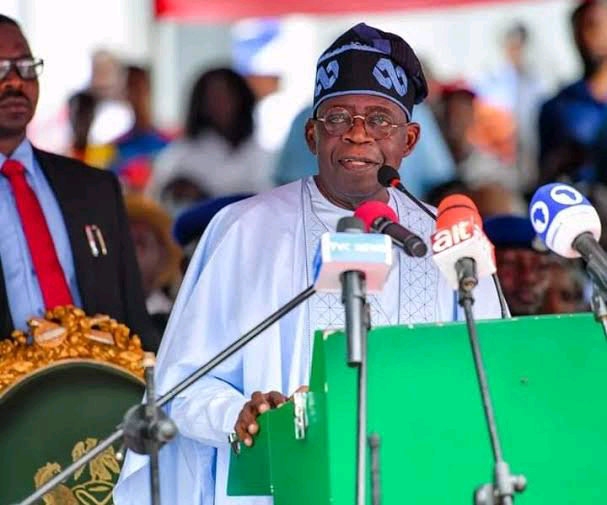
By Amb. Gbara Awanen
On 26th November, 2025, President Bola Tinubu, GCFR,forwarded a list of three ambassadorial nominees to the Senate for confirmation, obviously the first instalment of a much anticipated and longer list to follow. Among the nominees is Ambassador Ayodele Oke, CFR, former Director General of the National Intelligence Agency (NIA) who headed the Agency between 2013 and 2017. During this period, he faced allegations of corrupt enrichment, which turned out to be unproven.
Predictably, political buccaneers and some misinformed elements in the civil society are beginning to push back against Ambassador Oke’s nomination, referencing the unproven allegations. While understandable, those seeking to deny this celebrated national intelligence chief and outstanding international public servant are ignorant of the basic facts of this unfortunate saga. Here are the facts. Ambassador Oke was accused, duly investigated, and ultimately cleared of any wrongdoing. On 9th June, 2023, Justice C. J. Aneke of the Federal High Court in Lagos, struct out all charges against him on grounds of national security imperatives and mutual agreement between the prosecution and defence teams to discontinue a case that should never have happened in the first place. The termination of the charges against Ambassador Oke received political validation following President Muhammadu Buhari’s concurrence with the legal and national security dimensions of the case.
The cornerstone of any just and democratic society is the principle of the presumption of innocence until proven guilty. A formal, final exoneration, whether an acquittal, dismissal, or quashing of charges, is the ultimate declaration of legal innocence. To continue treating an accused “guilty,” despite a final legal verdict affirming innocence is to subvert the constitutional process and the authority of the judiciary. In our democracy, innocence, once established by law, must be upheld. Ambassador Oke’s exoneration means there is no current legal or constitutional barrier to his holding public office again because his past indictment was based on allegations that have now been legally disproven. In this moment, Ambassador Oke’s legal standing is the same as any other citizen of Nigeria with a clean record.
Society and the government have a moral obligation to treat citizens fairly, especially those who have been subjected to the most severe allegations of public misconduct. Allowing a vile and orchestrated media campaign to succeed would establish a dangerous precedent where accusation alone turns to permanent punishment, regardless of the facts or legal outcome. This would be profoundly unfair. A government should be free to appoint the most qualified individuals to high office and few come close to this eminently qualified nominee in national security and diplomatic governance.
To withdraw the nomination or disqualify the nominee due to recycled, disproven allegations would politicize the outcome of judicial proceedings. Worse, this would send a dangerous message that one can always weaponize unproven allegations against an accused, effectively overriding the judiciary’s fact-finding role. It goes without saying such an outcome will encourage detractors to mount similar campaigns against any perceived political enemy, regardless of evidence.
By standing firm, the government will be demonstrating its confidence in the justice system and its own nominating authority. It holds detractors, the ignorant and the misinformed accountable to the facts of the legal outcome, not just emotional rhetoric. Standing firm demonstrates strength and stability in governance. After a verdict of complete innocence, the conversation ought to focus on a public official’s current suitability, vision, and future contributions to his country, not on past allegations that have been disproven.
The decision to stand by the ambassadorial nomination of this fine public officer is a powerful affirmation that in a state governed by law, the legal verdict must prevail over public opinion and political pressure. After all, Ambassador Oke’sexoneration fully restores his legal and moral right to public service. To surrender to a media campaign based on disprovenallegations is to undermine the rule of law, perpetuate a grave injustice, and erode the integrity of the public service nominating process.
The nomination of Ambassador should stand because anaccusation is neither guilt nor conviction. After a final and decisive verdict of innocence, the nominee is legally innocentand morally vindicated. His fitness for office must be judged on his current merit and the final judicial outcome, not on the weaponization of past, failed accusations. His current legal standing is the same as any other citizen with unblemished record. It would therefore be grave injustice to subject Ambassador Oke to a misguided media trial on the same disproven charges. This outstanding public servant has paid his due to the system by enduring a lengthy and traumatic legal process. He should not be forced to relive the punishment after being declared innocent.
President Bola Ahmed Tinubu made the right call to recognize Ambassador Oke’s sterling qualities by nominating him with two other distinguished personalities as his principal personalrepresentatives in key partner countries in a time of grave national security emergency. What our country needs in this moment are steady, mentally acute, and strategic thinkers, as Ambassador Oke is, to help the government navigate the uncertainties, risks and opportunities in a rapidly shifting and dangerous geopolitical landscape.
The government must be resolute and reject a media trial that could rob our country of the services of one of its finest diplomats. By standing firm and guiding Ambassador Oke’snomination through the confirmation process, the government will be making a powerful statement that it favours meritocracy, respects the rule of law, values public service, and is willing to stand by an individual who has been unjustly accused. In times like this, our government must showpolitical and moral courage in the face of an emotional, but factually bankrupt, media frenzy.
Amb Gbara Awanen, PhD, mni is a retired Career Ambassador and Mene Eedee 1 Bera in Gokana Local Government, Rivers State.
Opinion
Engr. Kawu: A Heroic Homecoming for a Man of the People
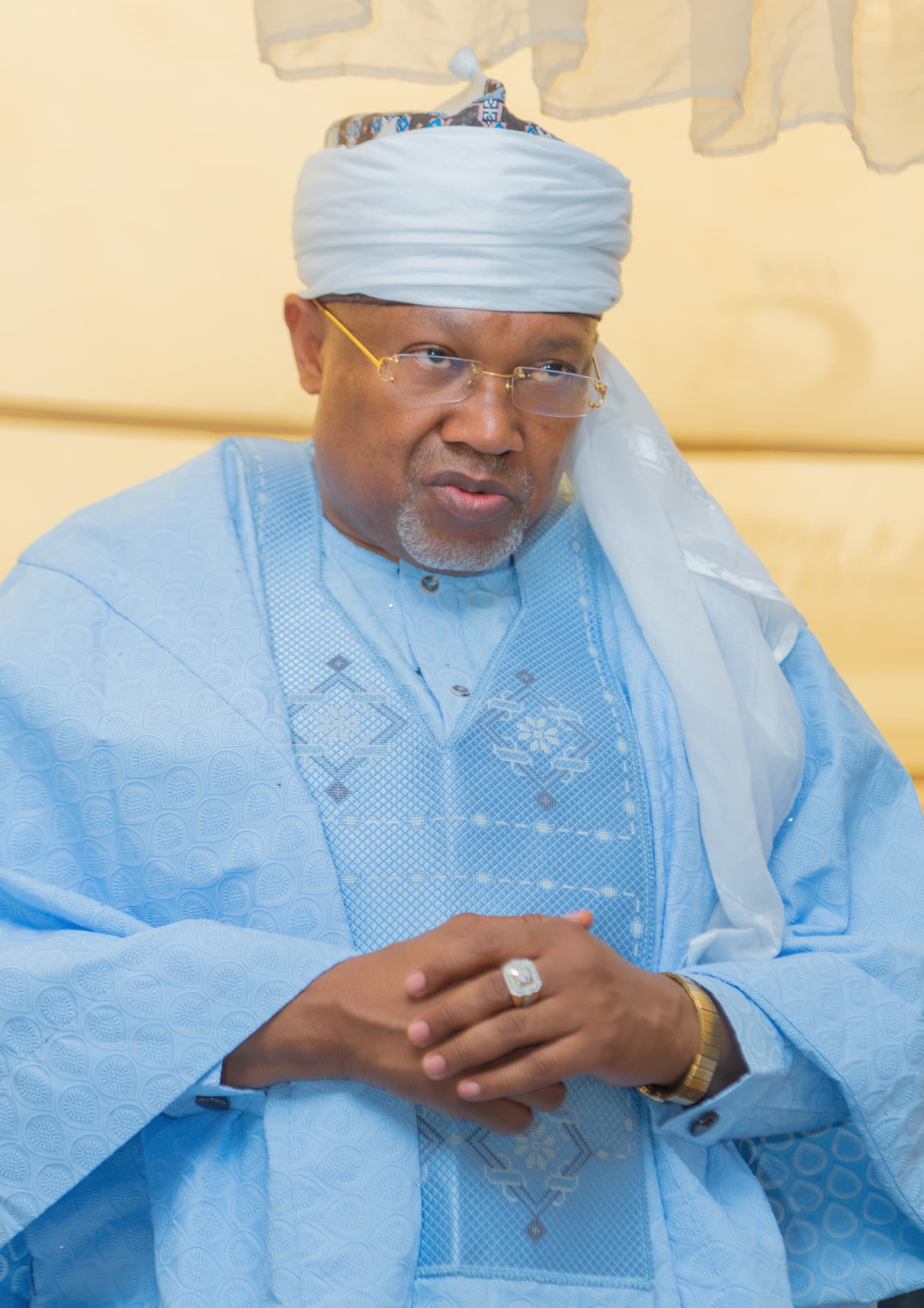
By Adegboyega Ajadi
Ilorin was thrown into rare jubilation last week. Not because of a political rally, nor because a sitting governor commissioned a project, but because a man of destiny returned home after a meritorious career in the public service. The outpouring of love for Engr. Suleiman Bolakale Kawu Agaka was spontaneous, overwhelming, and instructive. It was a message from the people to the political class: we know who has stood with us, and we know those who only remember us when elections draw near.
From Abuja to Ilorin, the narrative was the same. Stakeholders across party lines, community leaders, Islamic scholars, friends, associates, and ordinary people celebrated a man whose works have silently reshaped lives and whose character has earned him uncommon respect. In both cities, the events were not sponsored jamborees. They were not financed with state resources. They were genuine tributes by those who have seen, touched, and felt the impact of Engr. Kawu.
At the Abuja event organised by the Ilorin community, two voices stood out in their testimonies, his boss and his subordinate.
Abba Abubakar Aliyu, his former Managing Director at the Rural Electrification Agency, confessed he had yet to come to terms with the reality of Kawu’s retirement. With emotion in his voice, he declared: “No problem within the Agency that Engr. Kale was unable to resolve. He performed every assignment with utmost dedication and commitment, even spending his own resources to achieve targets. This is unprecedented in the history of the Agency.” That is not the usual flattery of a superior; it was the acknowledgment of a colleague who had seen him go above and beyond for the institution.
On her part, Ojua Omodara, who worked directly under him, gave a subordinate’s perspective: “Engr. Kawu is a goal-getter. He gives assignments and follows through until results are achieved.” Between these two voices, superior and subordinate, lies a portrait of leadership: diligent, selfless, and result-driven.
If Abuja offered professional testimony, Ilorin presented a moral verdict. From the airport to the heart of the city, unprecedented crowds lined the streets. People came in unimagined numbers, not lured by patronage, but drawn by affection. They came with their hearts, with their voices, and with their prayers.
The Chief Imam of Ilorin led other Islamic scholars in offering supplications for his continued success, affirming what the people already knew, that his record is not only professional but spiritual, not only official but human. The prayers were thanksgiving for a man who had already touched lives in ways politics rarely does.
Here lies the prosecution: one after another, communities testified in ways more compelling than any campaign manifesto could promise. Villages spoke of how they were lit up, not by political promises, but by transformers facilitated through Kawu’s intervention. Students recalled scholarships that kept them in school when hopelessness beckoned. Families gave witness to medical support received at critical times when their loved ones would otherwise have been abandoned to fate. Villages pointed to mosques standing tall in their midst, built through his generosity. Imams bore testimony that for the past 15 to 20 years, they had been receiving salaries from him, a quiet, consistent support that kept religious institutions alive.
This was not philanthropy performed with television cameras rolling. This was not the noise of politics. These were silent deeds of service, done without the inkling of seeking political office. And yet, those who benefited never forgot. The Ilorin outpouring was their verdict: this is the kind of leadership we trust, this is the kind of leadership we deserve.
Nigeria is in search of leaders who embody the values Engr. Kawu has lived: integrity, service without expectation, empathy, and selflessness. His story demonstrates that true leadership is not the pursuit of power for its own sake but the capacity to impact lives, often quietly and sacrificially.
Those who thronged Ilorin did not come to repay political favours. They came because they recognised a man whose entire life had been service. In a society drowning in political cynicism, where people believe politicians only remember them when elections approach, Engr. Kawu’s story is a refreshing contrast. He is the reminder that leadership is not about how loudly one campaigns but about how deeply one serves.
This is why his homecoming transcends a mere celebration of retirement. It was, in truth, a referendum on the kind of leadership Nigerians yearn for. In Kwara, it was a clarion call to the political class: the people are watching, the people are keeping records, and when the time comes, the people will speak again.
Without saying it outright, the people of Kwara made a declaration last week: Engr. Suleiman Bolakale Kawu Agaka represents the kind of leadership the state deserves. His track record at the Rural Electrification Agency shows competence, accountability, and sacrifice. His silent philanthropy across Kwara demonstrates empathy, compassion, and vision. His ability to attract people across party lines, as seen in Abuja, reflects the inclusiveness and bridge-building needed in today’s polarised polity.
The heroic welcome he received was not purchased. It was earned. It was not staged. It was organic. It was the people’s way of saying: we know you, we trust you, and we are ready to follow you if you choose to lead us further.
The lesson is simple but profound: in a country where trust in leadership has collapsed, there still exists a model of leadership that works. Kawu’s life proves that service begets loyalty, sacrifice earns trust, and consistency commands respect.
Ilorin’s historic outpouring was not just a welcome home; it was the unveiling of a man of destiny. The people did not just celebrate his past; they proclaimed their hope for the future. They see in him not only a technocrat who served diligently but a leader who can carry Kwara forward with empathy and vision.
In the end, the moral tribute becomes a political lesson: leaders are not made by titles or positions, but by the lives they touch. And in Engr. Kawu, the people have found both their hero and, perhaps, their future governor.
…Adegboyega, a public affairs analyst, writes from Gaa Akanbi in Ilorin
Opinion
Lilian Onoh And Her Endless Wars Of Vendetta
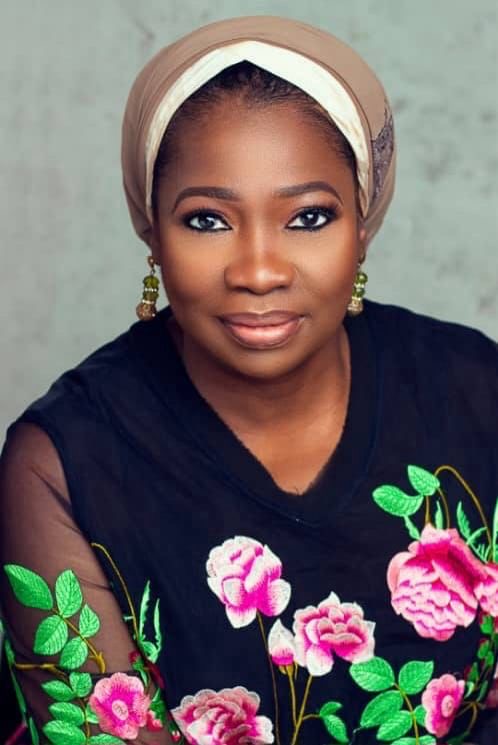
By Moradeke Kolawole
When a person is consistent in one thing, it becomes their identity. In the case of former Ambassador Lilian Onoh, consistency lies in bitterness, vendetta and endless feuds. Her latest attempt to drag Mrs Abike Dabiri-Erewa into her cycle of accusations follows a well-worn pattern. Onoh is known more for her fights than for any enduring legacy of diplomacy.
The court records from the libel case filed by former Minister of Foreign Affairs, Geoffrey Onyeama, expose the character behind the loud claims. Under cross-examination, Onyeama’s lawyer described her actions as nothing more than vendetta. Onoh herself admitted in open court that her hostility towards Onyeama was personal. She claimed he had pursued her career because her sister divorced him and went as far as describing the former minister’s supposed “hereditary insanity” and “unhinged psychiatric problem.” These are not the words of a seasoned diplomat. They are the words of someone consumed by malice and family feuds, now weaponised in professional spaces.
This is the same pattern she repeats with Abike Dabiri-Erewa. From a definitely fictional alleged encounter at Aso Villa in 2018, she has manufactured an entire story of Igbo hatred and ethnic vendetta, complete with insults, name-calling and cheap shots about appearance and education. Just like her fight with Onyeama, it is full of venom but empty of evidence. Abike Dabiri Erewa never met Onoh nor had any encounter with her anywhere at all. She is following her pattern of outright lies and venom.
It is ironic that someone accused of financial impropriety and known for dragging colleagues to court is now trying to lecture Nigerians on who is fit for public office. The truth is that Onoh’s record is one of bitterness and litigation, not of service and legacy.
By contrast, Abike Dabiri-Erewa’s record is open and verifiable. She gave voice to the voiceless as a journalist, served three terms in the House of Representatives with bills that cut across ethnic and religious lines, and as Chairman of NiDCOM has championed the cause of Nigerians stranded in Sudan, Ukraine, Libya, China and other troubled spots. She never asked whether they were Igbo, Yoruba or Hausa before intervening. That is the mark of service, not vendetta.
So when Lilian Onoh hurls unprintable words and tries to dress personal bitterness as national interest, Nigerians can see through it. Her own courtroom testimonies have already shown how far she is willing to go in twisting personal grievances into public battles.
Abike Dabiri-Erewa does not need to pay much attention to such manufactured stories because her work speaks for itself. Nigerians know her record and they know Onoh’s record too. One is a record of service, the other a record of quarrels.
So who is beyond redemption? Definitely Lilian Onoh.
-
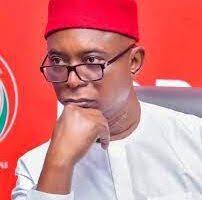
 Opinion9 months ago
Opinion9 months agoAnioma State: A Necessary Proposal Rooted in Strategic Advantage
-
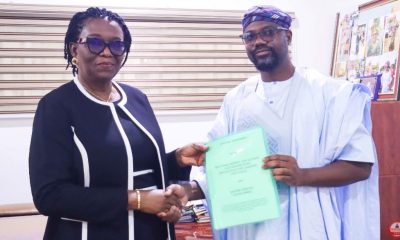
 Business & Economy1 year ago
Business & Economy1 year agoNASENI, Qietur partner to build 3000 Housing Units for Staff
-
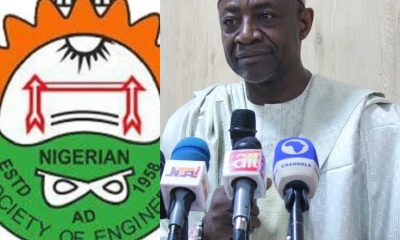
 Business2 months ago
Business2 months agoLithium boom has reshaped Nasarawa’s economy, says Prof Haruna
-
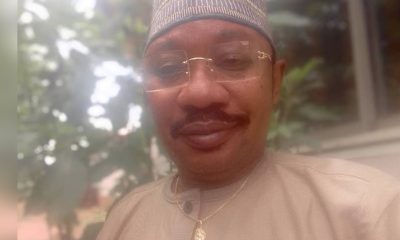
 Law1 year ago
Law1 year agoHuman Right and Law Enforcement in Nigeria: A Critical Analysis
-
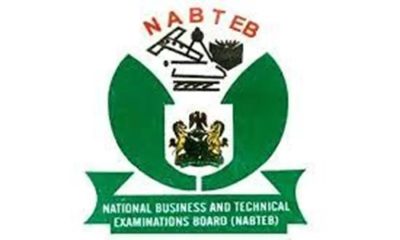
 Education3 months ago
Education3 months agoNABTEB Registrar advises automotive, locomotive Engineers to do more to diversify Nigerian economy
-

 Education6 months ago
Education6 months agoTVET will change Nigeria for good, says NABTEB Registrar
-
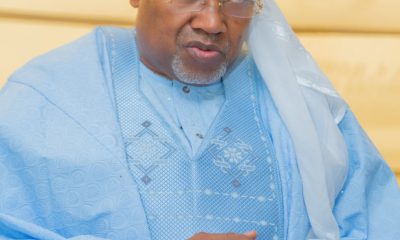
 Opinion3 months ago
Opinion3 months agoEngr. Kawu: A Heroic Homecoming for a Man of the People
-
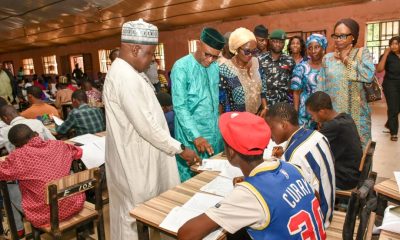
 Education6 months ago
Education6 months agoTVET: FG conducts entrance exam into FTCs for 30,000 students

